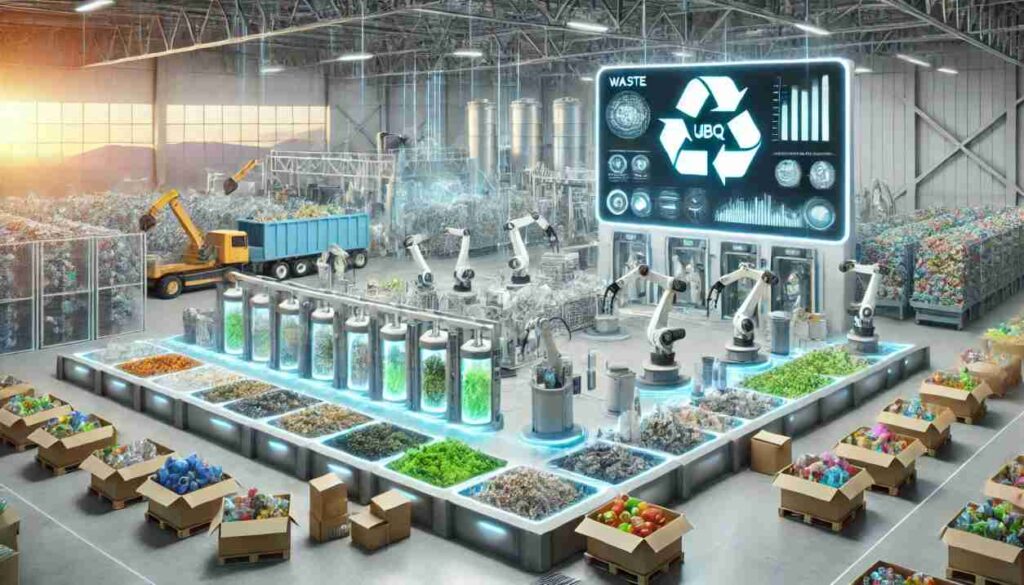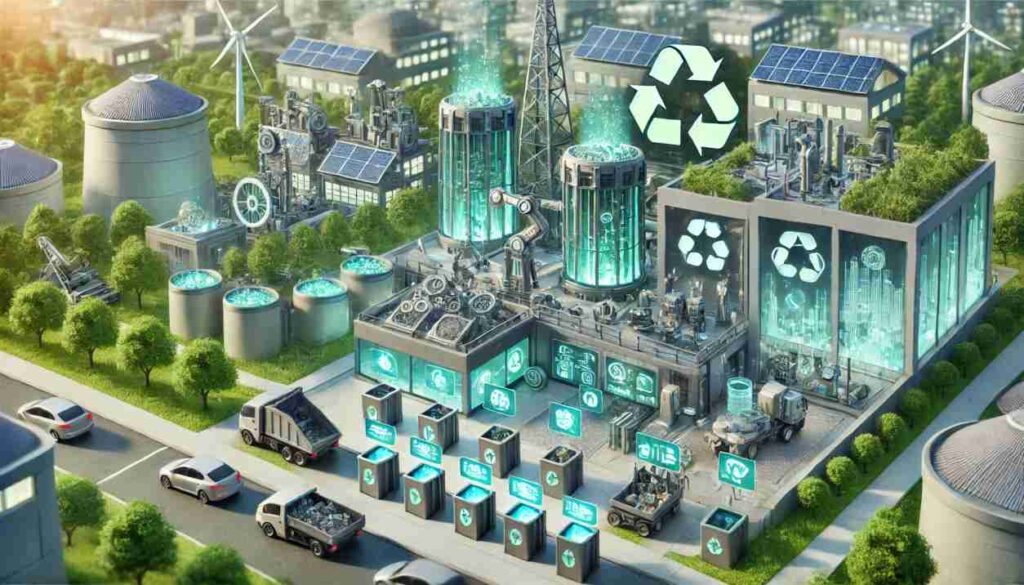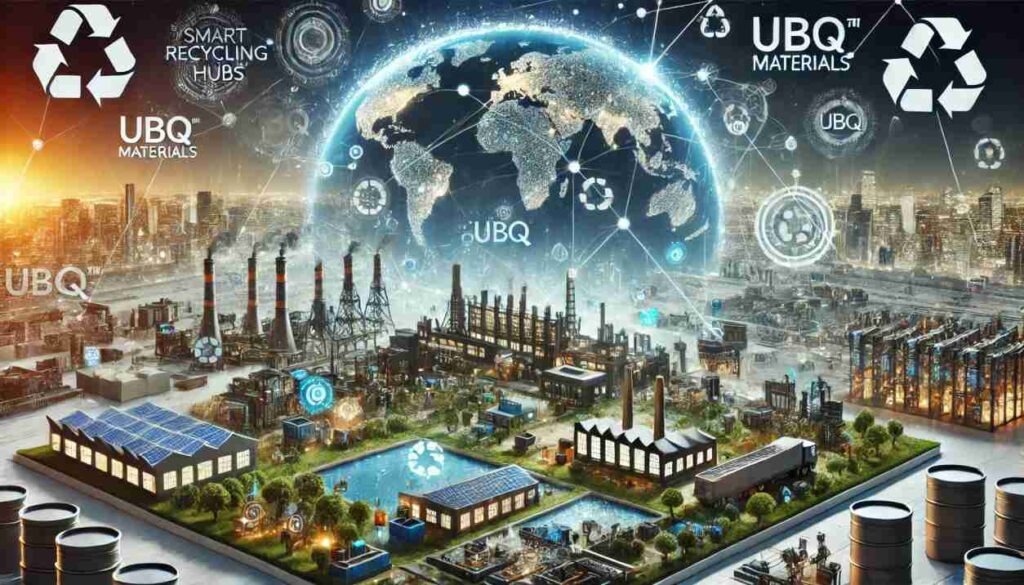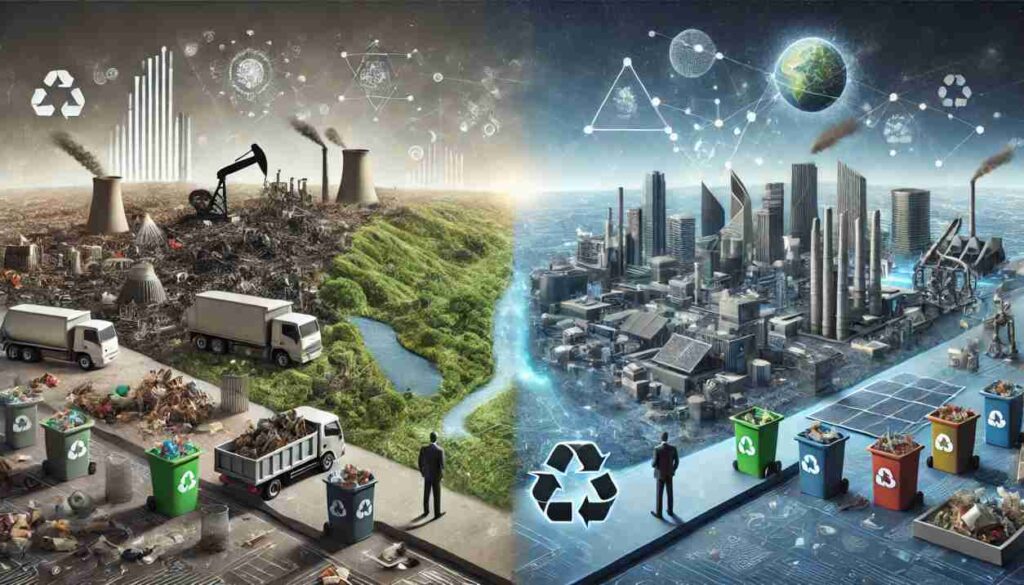Of course, as we all know, everything in this organization called UBQ Materials is marketing on the surface level. With an example of waste-generated value from household waste, this Israeli cleantech startup has been dubbed as starting a whole new approach to combining household waste into materials, making revolutionary innovations that turn unsorted waste with organics, plastics, and even dirty diapers into a fully recyclable, thermoplastic composite.
Undersigning belittling information about Founders
UBQ Materials founders are Jack “Tato” Bigio and Yehuda Pearl, who are very typical dynamics of pioneers who share the same vision of creating and innovating for a more sustainable future. Jack Bigio is also the co-CEO of the company and has considerable prior experience in the area of sustainable technology and business development. He has led several clean-tech initiatives before this startup, ensuring solid grounding into the matter of how the environment is being affected by unsustainability and technological solutions. Co-founder Yehuda Pearl was also behind the famous hummus brand Sabra and used his entrepreneurial vision to give shape to the mission behind UBQ. His experience in building an internationally acknowledged brand gave invaluable insights into building a company with exceptional environmental and economic impact.
Bigio and Pearl crafted UBQ Materials as a notable brand in the company of waste to resources. The partnership manifests that new ideas can enable environmental problems-sustainably impressive profit solutions. When combined, Bigio and Pearl emerged with a firm that mediates the global waste crisis while changing whole industries’ perspectives about raw materials.
The UBQ Materials Process: Converting Waste into Value

- The center of all the innovations by UBQ Materials is its patented conversion technologies that take between-used everyday waste destined for a landfill and convert it into a sustainable raw material called UBQ™. It not only helps to minimize the bulk waste in landfills but is a revolution in greenhouse gas emission reduction. It extracts valuable materials from waste streams to be able to produce options to traditional plastics that manufacturers can use to make stuff like furniture, packaging, automotive parts, and construction materials.
- UBQ accepts all sources of waste without pretreatment, unlike conventional recycling which calls for detailed sorting; this is a vital advantage that leads to the bypassing of expensive labor in sorting processes. Waste passes through a rather unique conversion process acting at the molecular level to produce a long-lasting, eco-friendly material. This latest invention diminishes reliance on fossil fuels and virgin plastics, offering a sustainable solution that fits right into current manufacturing.
- UBQ’s technology has taken great strides toward the challenge of a global waste crisis. This conversion of waste destined for landfills into raw material contributes to the realization of a truly circular economy. It not only mitigates the adverse effects of waste on the environment but also provides an enterprise-level solution for those industries aiming to shrink their footprints.
- Interesting Facts About UBQ Materials
Zero Waste Production: UBQ’s process ensures that nothing goes to waste. All elements of household waste-however organic, paper, and plastics- are used in making UBQ™ material. Such holistic methods maximize resource efficiency and minimize environmental impact. - Climate-Positive Material: Through the production of one ton of UBQ™, there is a decrease in carbon footprint by around 15 tons of CO2 equivalent. This makes UBQ one of the most climate-positive raw materials available today with real-time solutions to fight climate change.
- Wide-Ranging Applications: The use of UBQ™ can be found in diverse industries like automotive, construction, packaging, and consumer goods. Its versatility thus presents a great alternative for manufacturers searching for sustainable alternatives to traditional materials.
- Worldwide Recognition: The startup has received many awards and accolades for its environmental footprint and technological innovations. Industry leaders and environmental organizations alike salute the company’s disruptive approach.
- Market Confidence: UBQ Materials has successfully raised substantial investment, recruiting funding from major investors confident in its potential for both profitability and material environmental impact over the long run. The funding raised is a testament to the market belief in its technology and vision.
Environmental Impact of UBQ Materials
Among UBQ Materials, one of the most captivating benefits is the profound environmental impact of the technology. The company estimates that for every ton of UBQ™ produced, the carbon footprint is reduced by nearly 15 tons of CO2 equivalent. This makes UBQ one of the most climate-positive raw materials today.
The startup helps prevent methane emissions, one of the greenhouse gases that can be highly harmful, being 25 times more harmful than CO2, simply by diverting waste materials from landfills. Methane, which is one of the most important greenhouse gases, contributes significantly to global warming; therefore, it is very important to reduce the emission of methane as a key step to combat climate change. Using UBQ in place of traditional plastics also helps to reduce the use of non-renewable resources, thus leading to a more sustainable production cycle.
Transforming waste meant for the landfill into a valuable raw material is a substantial achievement in the fight against the ever-growing problem of plastic pollution. Especially in terms of preventing the causes of waste, UBQ’s technology finds use in the minimization of waste and maximization of resource effectiveness.
Global Business Development and Industry Adoption
UBQ Materials has several commercial brands and global industries seeking to use these materials in their products. Of these private contracts, UBQ will join its supply chains with McDonald’s, Daimler, PepsiCo, and other giants- evidence of his impressive production and resource flexibility, applications, and transformative potential across industries.
This is also reflected in municipalities and local governments that have waged wars against the coming zero-waste future. Hence, valuable resource assets can be created in cities by converting waste into resource value through its use, thereby minimizing landfill dependency and encouraging circular economies. Global demand for sustainable materials is increasing, and UBQ is positioning itself at the forefront of that tide.
Financial Growth, Investors, and Stock Market Status
Strong investor backing nominated UBQ Materials as the company’s future hope to transform waste management and sustainable production. By 2024, the company was able to acquire a large amount of funding through major investors like TPG Rise Climate, The Rise Fund, Battery Ventures, and Eden Global Partners. Recently, during a fund round led by Eden Global Partners to raise UBQ Materials by September 2023, the amount reached $70 million.
The startup has shown a good run, but it operates privately, and so far, the company has not been listed on any public stock exchanges. The pace at which things are changing concerning the increasing global attention to sustainability and the company’s entry into markets opens possibilities for an IPO in the future. That proves that long-term success can be anticipated by the startup’s ability to raise funds and have strategic partnerships.
The Future of Sustainable Waste Management
UBQ Materials is projecting a vision into the future of waste handling and sustainable manufacturing. The mission of the company is to extend its technology from the current level to the highest-level appointment of implementing UBQ™ as a main-stream material in industries, worldwide. Climate change and plastic pollution are persistent problems in the world, and the presence of UBQ Materials brings joy on the technology side—a real solution, of course, for the environment—or in terms of economic intelligence.

By turning that garbage heap into such rich feedwork UBQ Materials is demonstrating that sustainability and innovation like each other are not consistent at all. As more businesses and consumers adopt sustainable alternatives, the ripple effect can come from this trail-blazing technology to pave the path to a world that is cleaner and greener. What UBQ wishes to do is not to reduce waste; instead, it intends to change how the industry views sustainability and material use at the global level.
Scenarios have been favorable for this startup to become a byword in sustainable manufacturing, thanks to the possibility of widespread adoption, expanding investment, and technology upgrades. There is no longer any argument about the waste issue; it’s now time to nurture opportunities for a more sustainable environment.
Conclusion
UBQ Materials presented the panorama for an orbiting world; it is far from a mere business. It addresses the most pressing of time and environmental challenges by rewarding the trash it once was. UBQ’s technology and core mission propel the company to a leading role in global circular economy endeavors.
UBQ Materials is a situation of anticipatory role in a global climate change and plastic pollution scenario. By turning waste into an opportunity, it shows that sustainability is not mutually exclusive with profit. UBQ Materials is in a position to make a significant impact on the earth with its groundbreaking technology to bring equity to problems.
The future of waste management is now, and it is built by the voice of UBQ Materials. By reimagining the impossible, The startup is paving the way for a cleaner, greener, and more sustainable world.
Expanding the Vision: UBQ’s Role in Global Sustainability
This is precisely where UBQ Materials is moving forward: beyond just waste management, spreading its vision across the globe to a much larger canvas. The company works in concert with governments, NGOs, and international organizations to transform current practices of global sustainability. It seeks to create an international tapestry of waste-to-resource facilities that could work under any circumstances-from urban centers to remote areas by trading its technologies and expertise.

One such example is how UBQ combines education and awareness in its global strategy: the consumption-exhibiting policy that UBQ would like most businesses or households to adopt is the argument that needs to be supported with education for all of consumers, businesses, and policymakers about the associated relations to a circular economy. Workshops, seminars, and partnerships with educational institutions will help UBQ foster a new generation of sustainable leaders who understand better how to develop such innovative waste management systems.
Technological Development and Future Innovations
Not one to rest on its laurels, UBQ Materials continues to invest in research and development efforts aimed at improving its technology and expanding the scope of its applications. The company’s future innovations might involve the development of new composite materials with stronger properties like greater durability, flexibility, or heat resistance. That’s in addition to what the new improvements would create in terms of application opportunities for UBQ in industries such as aerospace, electronics, and healthcare.
As part of this effort, The startup is researching ways to combine its technology with other sustainability practices, especially renewable energy and water conservation. In effect, UBQ Materials is creating a more incorporated world toward sustainable livelihoods, making it the one-stop shop for the environmental headaches of the 21st century.
The Larger Impact: Social and Economic Benefits
The impact of this startup, therefore, will be on the social and economic fronts apart from the environmental merits. Its technology could hold a solution for some major social and economic benefits that would come along with reduced dependence on landfills: altogether, lowering health and environmental risks, waste disposal usually creates in developing countries, again improving the public health outcome, hence a better life quality for communities around the world.
Then, economically, new jobs are created in waste management, production, and research and development because of the economic contribution. As such, UBQ operations could affect local economies and create opportunities for skilled and lesser-skilled laborers. Lastly, This startup also massages costs for manufacturers by not only producing their raw materials at lower prices but converting them into less expensive competitors in a world focused more and more on sustainable raw materials as a whole.
Call to Action: Join the Movement
UBQ Materials works on the power of collaboration and innovation. The vision, however, cannot be achieved alone by the company. Consumers, businesses, and their governments Publics can another from creating a truly sustainable future such as buying products made from UBQ™ and advocating for sustainable practices by consumers; using UBQ™ in their companies’ supply chains and committing to reducing their environmental footprint by business; and finally, governments might encourage circular economy policies and incentives for companies that are undertaking sustainable technologies.
Cross-organizational and cross-boundary efforts can multiply the power of UBQ Materials’ technology and hasten the transition to a circular economy. It’s time to act now, as they say, and this startup is blazing the trail. Become a part of the movement joining the solution to one of the most pressing issues of our time. Together we can make trash from treasure and, thus, a cleaner, greener, and more sustainable world for generations to come.
The Science behind UBQ: Closer Looking at the technology
To get an idea of the innovation that this startup has introduced, it is important to learn about the science behind its proprietary technology. It starts with the unsorted collection of household wastes that have a mixture containing organic waste, plastics, papers, and even things that cannot be recycled. After that, they are taken to the UBQ facility, where advanced stages of mechanical and chemical processing are carried out.
The first operation is breaking wastes into small particles so that they undergo heating treatment, which breaks the most complex molecular structures of the materials. This depolymerization converts the wastes into homogeneous raw material. Subsequently, it is cooled and pelletized to form UBQ™, a universal thermoplastic composite.
arguably the most amazing feature of UBQ’s technology: is that it does not require prior sorting of mixed wastes for processing. Indeed, old recycling has always required the separation of materials, which can be tedious and expensive. The process eliminates that particular step; thus, it becomes efficient and scalable. And finally, the technology is designed to operate in energy-efficient modes, thereby minimizing its overall environmental impact.
Case Studies: Real-World Applications of UBQ
The technologies offered by UBQ Materials are already leaving their tangible footprints on different industries. A few real-life applications of UBQ™ are mentioned here:
- McDonald’s: The fastest food chain has joined up with UBQ Materials to use it in packaging and restaurant furniture. Using UBQ™ will help McDonald’s to cut down on virgin plastics and reduce its carbon footprint.
- Daimler: The carmaker is presently investigating the use of UBQ™ in car parts. Daimler aims to produce more sustainable vehicles by replacing conventional plastics with UBQ™.
- PepsiCo: This food and beverage company is testing UBQ™ for packaging applications. It fits within PepsiCo’s broader commitment to eliminating plastic waste and fostering a circular economy.
- Construction Industry: Design and construction materials, such as panels, tiles, and insulation, are being fabricated using UBQ™. Such materials serve as sustainable alternatives to the existing construction goods, thus lessening the impact of construction on the environment.
Policy and Regulation Promoting Sustainable Materials
While companies like UBQ Materials are spearheading sustainable innovation, the role of policy and regulation should not be ignored. Governments worldwide play an urgent role in promoting the adoption of sustainable materials and practices. They can do this through the effective use of incentive structures, regulation, and public awareness campaigns.
Incentives such as taxes, grants, and subsidies could instigate businesses to invest in sustainable technologies like UBQ™. Regulations that force the use of recycled materials or limit virgin plastic would create a demand for innovative alternatives, while consumer outreach would inform consumers of the advantages of sustainable materials and incentivize their use.
With a supportive policy framework, governments could hasten the transition to a circular economy and provide support for companies like UBQ Materials to reach their full potential.
The Global Waste Crisis: An Expanding Challenge
The global waste crisis is one of the most pressing environmental issues of our generation. The World Bank projects a growth rate of 70% in waste generation across the globe by the year 2050 in the case of a ‘business as usual scenario.’ This prima facie sudden increase in waste is the result of population increase, urbanization, and changing consumer behavior.
Landfills, which accommodate most of the waste, cause the most greenhouse gas emissions. Organic matter in the landfill decomposes and releases methane, an exceedingly potent greenhouse gas, contributing to climate change. In such a situation, the potential for soil and groundwater contamination compromises the safety and health of communities nearby.
This is another dire problem, that of plastic pollution. Wasteful plastic weighs millions of tons each year that are thrown into the oceans and eventually affects marine life and ecosystem structures. The fact that plastic does not degrade naturally renders it incapable of biodegradation for hundreds of years, thus causing long-term ecological damage.
This is one of the promising solutions offered by the technology of this startup to the above problems. UBQ converts waste to a valuable resource thus allowing for a reduction in waste going to landfills, and perhaps, reducing the environmental impact of plastic pollution.
The Circular Economy: A New Paradigm in Sustainability
At the core of UBQ Materials’ mission is a circular economy that opposes an old linear economy. Whereas it accumulates resources for as long as possible in an attempt to extract the maximum value for them before recovering and regenerating products and materials at end-of-life, the circular economy takes a completely different approach.
These kinds of economies would consider waste as a new resource, not as a problem that has to be solved. This change in mindset is paramount for sustainability and reducing the impact of shouldering human activities on the already degraded environment.
This is precisely the practical example of UBQ Materials’ technology as belonging to the kind of circular economy. The loop is closed as waste is converted to a precious raw material; thus, the possibility of a fully reusable and recyclable resource creates an ecosystem. Such a model reduces waste, conserves resources, and reduces greenhouse gases.
Way Ahead: Issues and Opportunities
However, despite the numerous advances made by this startup in achieving goal-oriented sustainable waste management, the challenges are not going to end anytime soon. One of the greatest challenges will be scaling up production to meet the increasing demand for green materials. Already, many companies and industries are using UBQ™, and therefore more production lines and expansions in operations will be required by the company.
Raising awareness for changing consumers’ psyches overuse is another uphill task. Now it is quite evident how good these materials are compared to other sustainable ones. However, most consumers have the ignorance of their selection. Thousands of them will probably have to be educated in terms of better behavior with UBQ™ products.

The challenges could be very few but with a very bright future for UBQ Materials. There is a very good market available in the world for sustainable materials, increasing with every hour due to awareness and the need for the development of innovative solutions vis-à-vis environmental issues. As many companies keep on committing themselves more to their sustainable goal stringency, the demand for UBQ™ is also expected to rise, thus opening up more opportunities for growth and use.
A Vision for Tomorrow: UBQ’s Long-Term Goals
Looking forward, The startup is quite definitely ambitious for the future. The company is, rather, seeking to grow into a global presence in sustainable materials, with significance in the world’s emerging markets. UBQ seeks to achieve mainstream recognition of UBQ™ as a material by developing technology and forming new partnerships across industries.
In similar terms, production expansion is one of the facets of UBQ’s continuous commitment to innovation. The company focuses research and development on furthering its technological improvement and exploring new uses for UBQ™. This includes the development of new composite materials and improvement of properties together with integrating the technology of UBQ with other sustainable practices.
UBQ Materials envisions a world where waste will no longer be considered a problem but a resource. This is the long-term potential reality UBQ foresees within a redefined mindset, wherein waste and materials can be redefined to act as catalysts for creating a more sustainable and prosperous future.
Final Thoughts: Reachable Sustainable Future
UBQ Materials is a company committed to sustainable community production; however, it is more of a beacon hopes against waste and all sorts of environmental degradation. The innovativeness in technology, coupled with UBQ’s commitments to sustainability, allows UBQ to be a forerunner in the global fight for a circular economy.
The transformation of waste into value has, on the one hand, solutions to abnormal climate changes and, on the other hand, the very consequences of plastic pollution. For that reason, UBQ Materials represents the unmistakable way forward for a sustainable future in which there is a harmony between morality and the economy.












